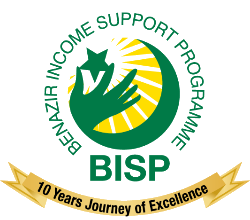Benazir Income Support Program

A written reply to an opposition member’s question in the provincial assembly has revealed that as many as 26,500 employees and close relatives of government officials have fraudulently received a quarterly sum of 8,500 rupees from the Benazir Income Support Program (BISP) for years.
When the Pakistan People’s Party assumed power in 2008 it appointed economist Dr. Kaiser Bengali to work out an anti-poverty scheme focused on women. Using information technology, the BISP was founded. He started with it because he managed the operation himself when it was first conceived, but disillusioned with the culture of corruption prevailing in Sindh’s governance, he broke all ties with that very governance.
Barely had he resigned, when BISP surfaced but with an altered course:. The AGPR, which oversees the audit of the Government departments, determined in 2019 that 820,165 government employees working across the country were ineligible for BISP funding. A list featured the wives of senior officers and close relatives of district officers; at that time, PTI was in power. Accusing them of embezzlement of public funds, the PTI government came out with stern disciplinary action against them as being politically motivated, that can give the culprits a free walk. It has run unchecked due to embezzlement.
In many audit reports, the misuse of BISP funds was caught by the AGPR; the corruption by this Sindh government is not taken much seriously. This has cushioned fraudsters up to this moment, as the government was compelled to reveal the names and numbers of those sabotaging the poverty reduction program in the house, though no disciplinary action was announced against the officials responsible for the misuse of BISP funds. Dr. Bengali had visualized BISP as a pure program for the poorest of the poor women, designing a tight system for checking applicant information, disbursal of payment through bank cards, and requiring biometric verification upon every disbursement.
However, the reliance of BISP on information technology has led to a sea of fraud with reports coming out every month about poor women from rural Sindh areas being deprived of their money in full by bank employees. Most women in rural areas are illiterate who do not know how to use their cards and, therefore, are susceptible to being exploited by the bank employees.
Nearly 40 percent of Pakistan’s population suffers from the scourge of poverty, and the number of female citizens is more than male. Poverty in rural Sindh has been on the rise. Agricultural economy, reported to be in relation with that, is mostly banking on it as the rural population relies on it. A recent report in the *Express Tribune* disclosed that family-based division of land is decreasing crop yields and subsequently lowering down the revenue incomes of farmers. It is through these economic changes that thousands of poor farmers are being forced to leave their villages for employment in cities almost every passing day.
The COVID-19 pandemic has further battered growth in both agricultural and industrial sectors, further aggravating the situation. Since 2008, BISP has expended billions of rupees, yet poverty remains unfazed. Some critics point out that the present government seems to run at a loss when it comes to productive programs for the elimination of poverty and are of the view that middle-class people are facing difficulties because of electricity price increases. Still, there is unanimity from experts who feel that there is a need for programs such as BISP.
Journalists covering the Sindh Secretariat report that Public Accounts Committee chairperson Nisar Khuhro, a PPP leader, was bound to address violations and corruption across various departments at each session following objections raised by AGPR.
It was revealed last week that in a meeting of a PAC, the Fisheries and Livestock Department gave permanent appointment to 132 veterinary doctors without any competitive examinations from the Sindh Public Service Commission. A sum of seven billion rupees was issued in the shape of salaries. According to the report, objections raised by the Auditor General in this illegal exercise were also not heard of. Such incidents directly hamper the performance of the Sindh government. Its developments are inclined to slow down.
In other words, the funds received under BISP are neither reaching the needy nor do they target the right recipients, and hence, it does more harm than good by critically reducing the opportunity of targeting the reduction of poverty in rural areas. It’s time to address the corrupt influence involved with fraud in the much-touted BISP program with an inquiry led by a High Court tribunal so that those responsible face the consequences and deter future embezzlement in this essential program.




